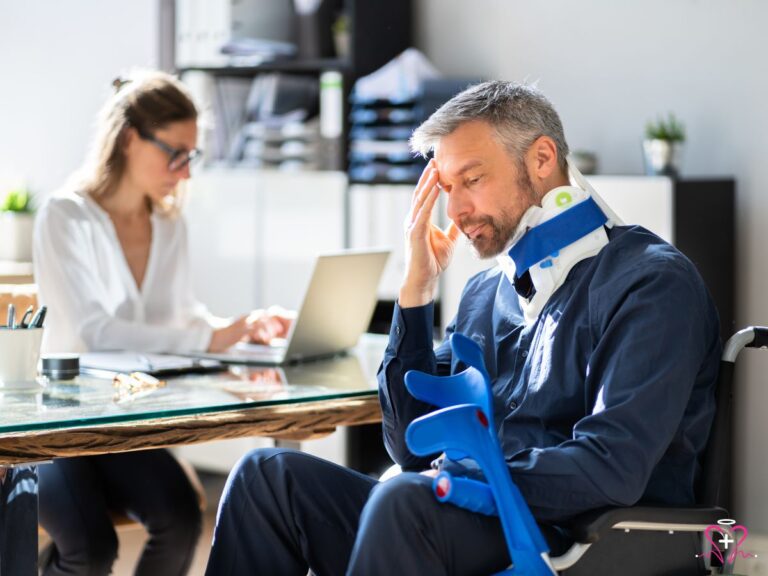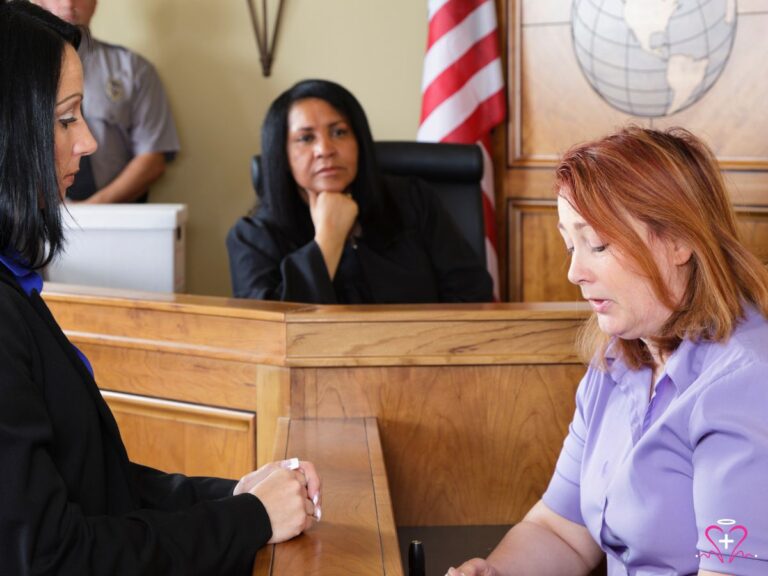Recovering from a personal injury can be especially challenging for seniors. Beyond medical bills and ongoing care, the process often involves coordinating with insurance companies, legal professionals, and various healthcare providers. At All Seniors Foundation, our Personal Injury Case Management services are designed to streamline every aspect of the recovery process, from securing proper medical treatment to pursuing fair compensation. We understand that seniors have unique needs—both physical and emotional—and our goal is to ensure you receive the compassionate, comprehensive support you deserve.
What Is Personal Injury Case Management?
Personal Injury Case Management refers to the end-to-end coordination of services and resources after an individual sustains an injury. For older adults, this can include navigating the complexities of healthcare systems, working with a personal injury lawyer, and ensuring that any future medical or financial needs are carefully planned for. Effective case management involves:
- Medical Coordination: Scheduling appointments with specialized personal injury doctors and making sure treatment plans align with senior-specific needs.
- Legal Guidance: Collaborating with attorneys who focus on senior personal injury cases, so you can secure a fair settlement or verdict.
- Resource Allocation: Directing you to relevant community services, such as home healthcare, physical therapy, and emotional support groups.
- Financial Tracking: Monitoring expenses related to your injury—such as hospital bills, rehabilitation costs, and medication fees—and compiling detailed records for insurance or legal proceedings.
By merging medical expertise with legal insights, All Seniors Foundation takes the stress out of managing multiple providers, allowing you to focus on what matters most—your recovery.
Why Seniors Need Comprehensive Case Management
As we age, injuries can have more significant consequences and may require longer recovery periods. Even seemingly minor incidents such as a slip and fall can escalate into major health concerns if not promptly and properly addressed. In addition, seniors often juggle multiple health conditions, medications, and mobility constraints, making self-advocacy in a personal injury case more challenging.
That’s why comprehensive Personal Injury Case Management proves invaluable. By entrusting the coordination of medical care, therapy sessions, insurance documentation, and legal filings to an experienced team, seniors benefit from:
- Streamlined Communication: A single point of contact who coordinates all the moving parts, preventing information gaps.
- Stress Reduction: Alleviating the burden of dealing with insurance companies and multiple healthcare providers on your own.
- Specialized Senior Care: Ensuring that every service, from diagnostic tests to rehabilitation programs, is tailored to older adults.
- Better Outcomes: Timely interventions and organized treatment plans often lead to faster, more complete recoveries.
The Role of a Personal Injury Case Manager
A case manager serves as the linchpin for all services related to your injury. At All Seniors Foundation, our case managers understand the intricacies of senior healthcare and the unique stressors older adults face when pursuing compensation. Key responsibilities include:
- Needs Assessment: Conducting an initial evaluation to determine the type and intensity of care required.
- Care Coordination: Making appointments with personal injury doctors, arranging therapy sessions, and monitoring the overall treatment plan.
- Legal Collaboration: Working closely with personal injury lawyers to collect documents, medical records, and other evidence that strengthens your claim.
- Emotional Support: Guiding seniors and their families through the emotional ups and downs of recovery, often connecting them to support groups or counseling services.
- Ongoing Adjustments: Continuously reviewing treatment progress, updating the plan, and addressing any emerging medical or legal needs.
Through these tasks, your case manager ensures the entire process remains cohesive, transparent, and client-focused.
Common Personal Injury Scenarios for Seniors
Although personal injuries can happen to anyone, seniors face additional risks due to age-related factors such as reduced balance, vision changes, and fragile bones. Common personal injury situations for older adults include:
- Slip and Fall Accidents: Wet floors, uneven surfaces, or poor lighting can cause severe injuries like fractured hips or head trauma.
- Car Collisions: Even minor fender-benders can lead to long-term physical and emotional impacts for older drivers and passengers.
- Nursing Home Negligence: Inadequate supervision, medication errors, or unsafe living conditions can result in preventable injuries.
- Medical Malpractice: Seniors are particularly vulnerable if doctors misdiagnose or overlook existing conditions, which can lead to severe complications.
In each scenario, Personal Injury Case Management adds an extra layer of organization and advocacy, safeguarding seniors from gaps in care and missed compensation opportunities.
Our Case Management Process: Step-by-Step
At All Seniors Foundation, we tailor our process to your individual needs, ensuring seamless coordination at every stage:
- Initial Consultation: We’ll discuss the details of your injury, current health status, and any ongoing treatments.
- Medical Assessment: Our network of senior-focused personal injury doctors conducts evaluations and recommends individualized treatment plans.
- Legal Strategy: For those seeking compensation, we work alongside experienced personal injury lawyers to collect evidence, file claims, and handle insurance negotiations.
- Resource Allocation: Depending on your needs, we connect you with rehabilitation services, home healthcare, or emotional support programs.
- Regular Follow-Ups: Your case manager checks in frequently, adjusting the plan as needed and keeping you updated on medical progress and legal developments.
This structured approach minimizes confusion, so you never have to wonder who to call or what to do next.
The Importance of Documentation and Communication
Successful outcomes in senior personal injury cases hinge on accurate, up-to-date documentation. This includes medical records, bills, imaging reports, and testimonies from healthcare professionals. Our Personal Injury Case Management team ensures every piece of relevant information is properly filed and shared with your legal representatives. Transparent communication is key; we strive to keep you informed at every turn and encourage you to ask questions freely.
Strong documentation also proves vital if disputes arise with insurance companies. By presenting clear, organized evidence of your injuries, treatments, and related expenses, you stand a better chance of receiving a fair settlement.
Why Trust All Seniors Foundation?
Choosing a dedicated partner for Personal Injury Case Management means finding a team that genuinely understands the challenges seniors face. At All Seniors Foundation, we provide:
- Senior-Centric Expertise: Our professionals focus on the nuances of caring for older adults, from specialized medical treatment to emotional well-being.
- Multidisciplinary Collaboration: We bridge the gap between healthcare providers, insurance companies, and legal advisors, ensuring cohesive support.
- Transparent Practices: Clear communication and regular updates keep you in control of your recovery journey.
- Compassionate Care: Our mission revolves around respect, dignity, and empathy for every senior we serve.
We believe that seniors should feel confident and well-supported during one of life’s most vulnerable periods, and our personalized approach reflects this commitment.
Take the First Step Toward Stress-Free Recovery
If you or a loved one is dealing with a personal injury, let our Personal Injury Case Management services lighten the load. From coordinating medical appointments to standing up for your rights in legal proceedings, All Seniors Foundation serves as your all-in-one resource. Reach out today to learn how we can streamline your path to recovery, offer reassurance in uncertain times, and help secure the compensation and care you deserve.










